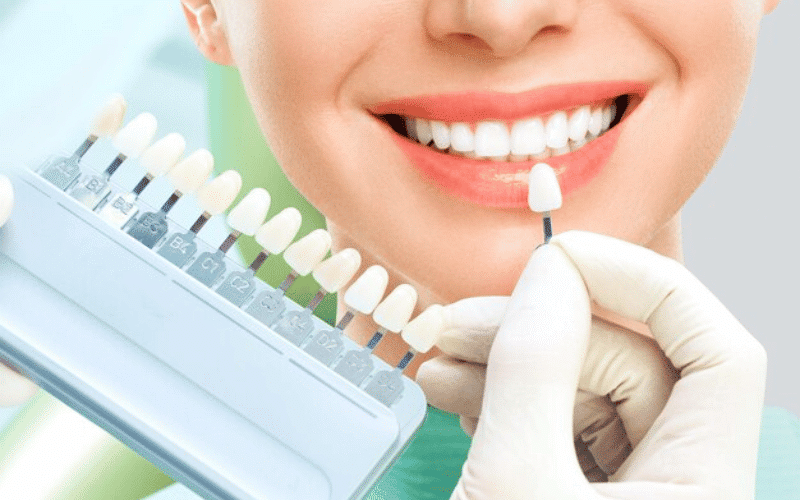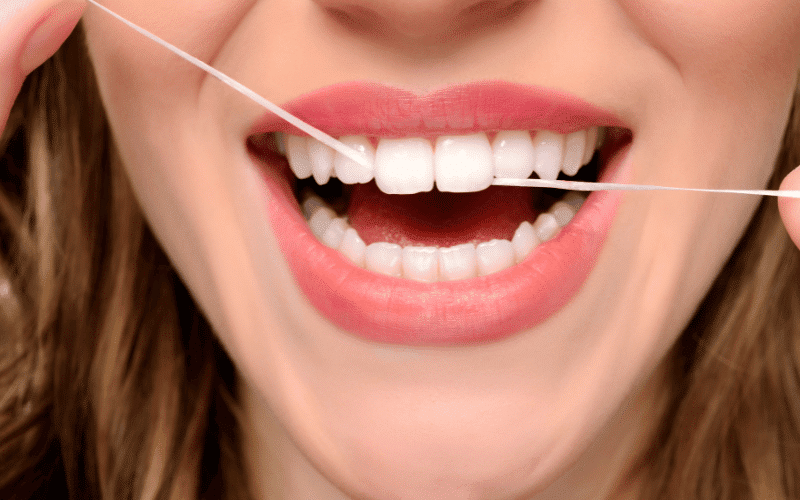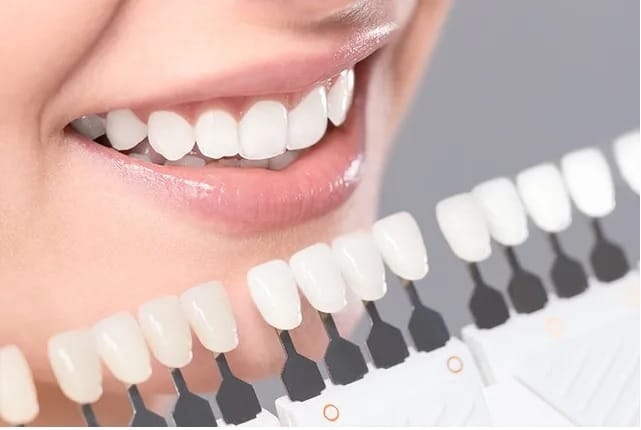
Should I Get Dental Veneers or Dental Bonding?
Dental veneers and dental bonding are cosmetic dental procedures aimed at enhancing the appearance of teeth. Veneers involve thin porcelain or composite shells custom-made to cover the front surface of teeth, correcting imperfections like discoloration or irregular shape.
They require enamel removal and are a more permanent solution. Dental bonding, on the other hand, uses tooth-colored resin applied directly to the tooth’s surface, bonding, and sculpting to address issues like chips or gaps.
While bonding is less invasive and more cost-effective, it may not be as durable as veneers. Both procedures offer practical solutions for achieving a more aesthetically pleasing smile.
Pros and Cons of Dental Veneers
Pros of Dental Veneers:
1. Cosmetic Enhancement: Veneers effectively improve the appearance of teeth, addressing issues like discoloration, stains, and irregular shapes, resulting in a more aesthetically pleasing smile.
2. Durable: Veneers are durable and resistant to stains, providing a long-lasting solution for cosmetic dental concerns when correctly cared for.
3. Customization: They are custom-made to match the color, shape, and size of natural teeth, ensuring a seamless and natural-looking result.
4. Stain Resistance: Porcelain veneers, mainly, are highly resistant to stains from substances like coffee or tobacco, maintaining a bright and vibrant smile.
5. Versatility: Veneers can correct multiple cosmetic issues simultaneously, offering a versatile solution for patients seeking comprehensive smile improvements.
Cons of Dental Veneers:
1. Irreversible: The process involves removing a small amount of enamel from the tooth surface, making the procedure irreversible and potentially impacting tooth sensitivity.
2. Cost: Dental veneers can be relatively expensive and may not be covered by dental insurance as they are considered cosmetic procedures.
3. Maintenance: While durable, veneers may require replacement over time, and any damage or chipping may necessitate repair or replacement, adding to long-term maintenance costs.
4. Sensitivity: Some individuals may experience increased tooth sensitivity immediately after enamel removal.
5. Not Suitable for Severe Structural Issues: Veneers are primarily cosmetic and may not be ideal for significant structural or functional dental problems, which may require more extensive dental work.
Pros and Cons of Dental Bonding
Pros of Dental Bonding
1. Cost-Effective: Dental bonding is generally more affordable than dental veneers or crowns, making it a cost-effective option for cosmetic dental improvements.
2. Minimally Invasive: Bonding requires minimal enamel removal, preserving more natural tooth structure than procedures like veneers or crowns and promoting overall dental health.
3. Quick Procedure: Dental bonding is a relatively quick process, often completed in a single office visit, providing immediate results and convenience for patients.
4. Versatility: Bonding can address various cosmetic issues such as chipped teeth, gaps, and discoloration, offering a versatile solution for minor aesthetic improvements.
5. Easy Repairs: If the bonding material becomes damaged or stained, it can be easily repaired or replaced straightforwardly, minimizing inconvenience for the patient.
Cons of Dental Bonding
1. Durability: While durable, dental bonding may be shorter than alternatives like veneers or crowns, and the bonded material can chip or wear over time, requiring periodic maintenance.
2. Staining: Bonding material may be susceptible to staining from substances like coffee, tea, or tobacco, potentially impacting the appearance over time.
3. Limited Cosmetic Corrections: Bonding is suitable for minor cosmetic issues and may not be the optimal solution for more extensive dental problems or comprehensive smile makeovers.
4. Not as Natural-looking: While bonding can provide satisfactory cosmetic improvements, the result may not be as natural-looking as veneers, which closely mimic the translucency and texture of natural teeth.
5. Sensitivity: Some individuals may experience increased tooth sensitivity after bonding, although it is generally temporary.
Factors to Consider when Choosing Between Veneers and Bonding
1. Extent of Cosmetic Correction Needed: Consider the severity of the cosmetic issues you want to address. Veneers are more suitable for comprehensive enhancements, covering a range of imperfections, while bonding is ideal for minor corrections like chipped edges or small gaps.
2. Budget and Affordability: Evaluate your budget as both procedures differ in cost. Dental bonding is generally more affordable than veneers. If cost is a significant factor, bonding may be a more feasible option, but weigh this against the longevity and potential maintenance costs.
3. Durability and Longevity: Assess the durability required for your specific needs. Veneers are more durable and stain-resistant over the long term, making them preferable for those seeking a lasting cosmetic solution. Bonding, while effective, may require more frequent maintenance and replacement.
4. Tooth Structure Preservation: Consider the amount of natural tooth structure you will sacrifice. Veneers involve removing a small amount of enamel, which is irreversible. Being less invasive, bonding preserves more natural tooth structure and may be preferred for those concerned about enamel removal.
5. Timeline and Convenience: Consider the time frame for achieving your desired results. Veneers typically require multiple appointments and a waiting period for custom fabrication, while bonding can often be completed in a single visit. If time is a crucial factor, bonding may be a more convenient option for immediate improvements.
Cost Comparison of Veneers and Bonding
The cost of dental procedures can vary based on factors like geographic location, the dentist’s expertise, and the specific case requirements. Generally, dental bonding is more cost-effective than veneers.
Dental Bonding:
– Average Cost: $100 to $400 per tooth.
– Factors Influencing Cost: The complexity of the bonding procedure, the number of teeth involved, and the materials used can impact the overall cost. Dental bonding is often considered more affordable due to its simpler nature and the materials involved.
Dental Veneers:
– Average Cost: $500 to $2,500 per tooth.
– Factors Influencing Cost: Veneers tend to be more expensive due to the higher-quality materials (e.g., porcelain) and the customization involved. The need for additional procedures, such as enamel removal or temporary veneers, can also influence the cost.
It’s important to note that these are average costs, and prices can vary. Additionally, dental insurance may not always cover cosmetic procedures like veneers or bonding expenses. Consulting with a dentist for a personalized assessment and cost estimate based on your specific case is recommended.
Making the Decision
When deciding between Dental Veneers and Bonding in Glendale, Singh Smile Care stands out with its expertise. While Dental Bonding offers a budget-friendly solution at $100 to $400 per tooth, Dental Veneers at Singh Smile Care, known for quality and durability, range from $500 to $2,500 per tooth.
Choose bonding for minor touch-ups or veneers for a comprehensive smile transformation. For a radiant smile tailored to your needs, trust Singh Smile Care’s exceptional services and book your consultation today!




